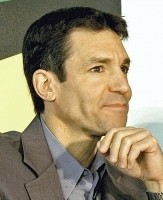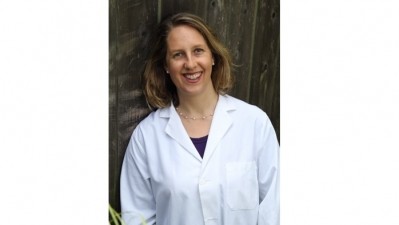Dr David Katz: ‘Lifestyle is the most potent medicine we have’

Dr Katz – an internationally recognized expert in nutrition, weight management, and chronic disease prevention – is the founding director of Yale University’s Prevention Research Center at Griffin Hospital, as well as the founder of the True Health Initiative, and President of the American College of Lifestyle Medicine. He recently joined the scientific advisory board of InsideTracker, a leading personalized health analytics company.
“Lifestyle is the most potent medicine we have,” said Dr Katz. “The team at InsideTracker helps people live an optimized life through nutrition, lifestyle, and supplementation guidance. With a simple blood test, InsideTracker users can see where their biochemistry stands and get immediate and actionable steps to take in bettering their health, or in the case of athletes, improving their performance. It’s the next step in personalized healthcare. I am excited to be a part of it.
Dr Katz told us that some companies playing in the personalized nutrition space are getting ahead of the science and placing undue focus on SNPs. “There are probably innumerable genes implicated with food and diet. There is no one obesity gene. A lot of our genetics real estate must be linked to our diets.
“The science is much more advanced when it comes to measuring metabolic parameters and combining this with physiological measures such as BMI and so on. That gives you a lot of windows to look through. What I like about InsideTracker is that they are placing the most emphasis where the science is the strongest.”
Personalized nutrition
While Dr Katz is excited about the potential of personalization and customization he cautions that these are early days.
“The science is early and evolving but I do think there is real value there. When you think about diet and exercise, there’s the saying that the best exercise is one you’ll actually do. It’s the same for diet,” he said.
When you think about customization there are two angles, he explained. The first looks at the science supporting the effects of a specific type of diet to change a specific metabolic measure, for example. Where is that science currently? The second looks at the behavior change literature and the psychological desire, and customization has been shown to produce a greater response. “Tailored messages are more impactful,” he said.
“Adding years to life and life to years”
InsideTracker's scientific advisory board reads like a who’s who of the best researchers of nutrition and aging in the US, including Prof David Sinclair from Harvard Medical School, Prof Jeff Blumberg from Tufts University, Prof Lenny Guarente from MIT, and Prof Roger Fielding from Tufts University.
Commenting on Dr Katz, Rony Sellam, CEO of InsideTracker, said: “David’s background and passion for innovation in personalized nutrition made him a natural and perfect fit for InsideTracker. We are thrilled to have him on board.”
People want customization but the one big caveat wrapping around all of this is that we are a species, and the fundamentals of a health-promoting diet for our species are common to us all, said Dr Katz. In an article published recently in Forbes in response to the launch of Habit, Dr Katz explained: “No doubt, there is metabolic and genetic diversity among individual lions of land and sea, as well as koalas, to say nothing of gibbons, tapirs and iguanas. But when it comes time to feed these or any other creatures in our care, we look right past those minor differences and feed them the fare that suits the species. Common sense, it seems, argues for feeding much the same food to the same kind of animal.”
Dr Katz told us: “It is arrogance unique to homo sapiens to think that this kind of thinking applies to every species on the planet except humans. We need to respect commonality and we should only customize within the context of sound scientific advice.”
“InsideTracker is doing it right,” he added. “They have good scientists and they are linking their offering to strong evidence”
Paradigm shift?
Is Dr Katz seeing a shift in attitudes in the medical community towards lifestyle medicine? “From a clinical perspective, that’s a long game. Doctors are so poorly trained in nutrition and diet, and they’re encumbered. It takes them ten seconds to write out a prescription for a pill and then they send the patient away, but to get people to eat better where do they even start? People may not know how to shop or cook. That is going to take a long time to change.
“What is changing quickly is interest in lifestyle medicine. During my time as president of the American College of Lifestyle Medicine membership has tripled. Lifestyle medicine organizations are developing around the world. There is massive interest, especially among young people. I have never seen optimism as I’ve seen in the lifestyle medicine meetings. These people are passionate about adding years to life and life to years.”















